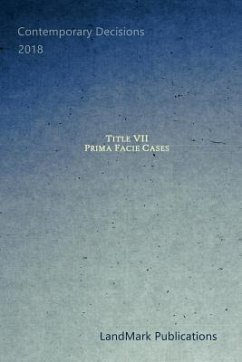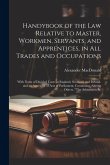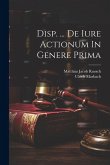THIS CASEBOOK contains a selection of U. S. Court of Appeals decisions that analyze and discuss the elements of a prima facie case under Title VII. * * * In addition to facing liability by creating a hostile work environment, an employer is liable under Title VII and § 1981 when it subjects an employee to disparate treatment. To show a prima facie case of disparate treatment, a plaintiff must offer evidence that "give[s] rise to an inference of unlawful discrimination." Sischo-Nownejad v. MercedCmty. Coll. Dist., 934 F.2d 1104, 1110 (9th Cir. 1991) (quoting Tex. Dep't of Cmty. Affairs v. Burdine, 450 U.S. 248, 250, 253, 101 S.Ct. 1089, 67 L.Ed.2d 207 (1981)). One way to establish an inference of discrimination is by satisfying the prima facie elements from McDonnell Douglas Corp. v. Green, 411 U.S. 792, 802, 93 S.Ct. 1817, 36 L.Ed.2d 668 (1973): (1) the plaintiff belongs to a protected class, (2) he was performing according to his employer's legitimate expectations, (3) he suffered an adverse employment action, and (4) similarly situated employees were treated more favorably, or other circumstances surrounding the adverse employment action give rise to an inference of discrimination. Hawn v. Exec. Jet Mgmt., Inc., 615 F.3d 1151, 1156 (9th Cir. 2010); Godwin v. Hunt Wesson, Inc., 150 F.3d 1217, 1220 (9th Cir. 1998) (citing McDonnell Douglas, 411 U.S. at 802, 93 S.Ct. 1817). * * * Under the McDonnell Douglas burden-shifting framework, when the plaintiff demonstrates his prima facie case, the burden shifts to the defendant to provide a legitimate, non-discriminatory reason for the adverse employment action. Hawn, 615 F.3d at 1155. If the defendant meets this burden, then the plaintiff "must then raise a triable issue of material fact as to whether the defendant's proffered reasons ... are mere pretext for unlawful discrimination." Id.
Bitte wählen Sie Ihr Anliegen aus.
Rechnungen
Retourenschein anfordern
Bestellstatus
Storno





